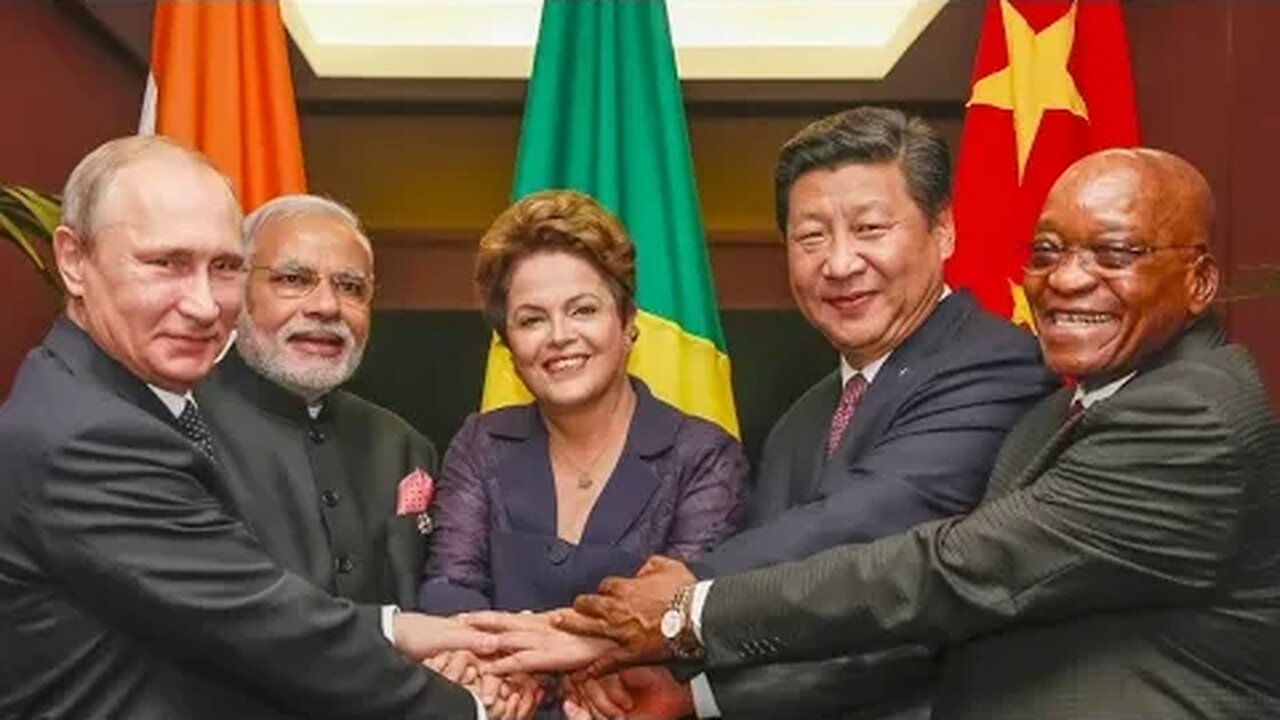Premium Only Content

BRICS Has the USD on the Ropes as Recession Fears Continue
BRICS Has the USD on the Ropes as Recession Fears Continue
Welcome, listeners! You're tuning in to Money Talk Sundayz, where we journey through the fascinating world of finance, economics, and global markets. I'm your host, Stevie Bee, and in today's episode, we're diving into a topic that's been making headlines: how the BRICS nations are competing with the US Dollar and the stock market. So grab your passports, and let's get started!
Before we discuss the competition, let's establish some context. BRICS is an acronym that stands for Brazil, Russia, India, China, and South Africa. These five countries, often referred to as emerging economies, have been collaborating to strengthen their collective economic power and reduce their dependence on the US Dollar.
One of the most significant ways the BRICS nations are challenging the US Dollar's dominance is by trading in their local currencies. By doing so, they are reducing their reliance on the dollar as a reserve currency and promoting their own currencies for international trade. This move has the potential to create a more diversified global financial system and reduce the influence of the United States on the global economy.
For example, China has been promoting the use of the yuan in international trade through various initiatives, including the Belt and Road Initiative and the Asian Infrastructure Investment Bank. Meanwhile, Russia has been gradually reducing its dollar holdings in its foreign reserves, opting instead for gold and other currencies like the euro and yuan.
Another significant aspect of the BRICS countries' challenge to the US Dollar is the establishment of new financial institutions. The most notable example is the New Development Bank (NDB), which was founded by the BRICS nations in 2014. The NDB's primary goal is to finance infrastructure projects in developing countries, providing an alternative to existing institutions like the World Bank and the International Monetary Fund.
By establishing their own financial institutions, the BRICS countries are creating a parallel system to that of the US Dollar-dominated world. This move could potentially weaken the influence of the United States in global financial decision-making and encourage a more balanced distribution of power.
Now, let's talk about how the BRICS nations are competing with the stock market. The BRICS countries have been making significant strides in developing their own stock exchanges and promoting investment in their local markets.
The BRICS Exchanges Alliance, a collaboration between the stock exchanges of the five BRICS nations, aims to increase investment in these emerging markets by offering a platform for cross-listing and trading of stocks. This alliance allows investors to access new markets, diversify their portfolios, and mitigate risks. Moreover, it provides an alternative to investing in the established stock markets of developed countries, such as the United States.
As the BRICS nations continue to collaborate and develop their financial infrastructure, we can expect a gradual shift in the global economic landscape. While the US Dollar and the stock market may still hold significant influence, the rise of alternative financial systems and institutions will likely challenge their dominance.
This competition has the potential to reshape the global economy in ways that could promote more equitable distribution of power and resources. However, it also comes with risks, such as increased volatility in currency markets and the potential for economic conflicts between nations.
-
 LIVE
LIVE
The Bubba Army
22 hours agoBURN The FLAG, Go to JAIL! - Bubba the Love Sponge® Show | 8/26/25
3,130 watching -
 29:45
29:45
DeVory Darkins
16 hours ago $6.21 earnedDemocrat Governor suffers EMBARRASSING LOSS to Trump as ICE takes Garcia into custody
20.3K64 -
 LIVE
LIVE
JuicyJohns
30 minutes ago🟢#1 REBIRTH PLAYER 10.2+ KD🟢
54 watching -
 18:22
18:22
World2Briggs
20 hours ago $2.63 earnedThe New York Rant: Point Blank With No Fluff or BS. A Warning
11.7K7 -
 42:52
42:52
The Finance Hub
14 hours ago $3.08 earnedBREAKING: ALINA HABBA JUST SHOCKED THE WORLD!
10.5K23 -
 LIVE
LIVE
BEK TV
23 hours agoTrent Loos in the Morning - 8/26/2025
326 watching -
 12:15
12:15
Nikko Ortiz
18 hours agoMonday Gun Fails
69.7K15 -
 8:19
8:19
MattMorseTV
17 hours ago $10.85 earnedTrump is ACTUALLY DOING IT.
68.9K52 -
 5:40
5:40
Sugar Spun Run
1 day ago $1.13 earnedNutella Brownies
20.3K2 -
 8:46
8:46
Faith Frontline
17 hours agoBill Maher STUNNED as Charlie Kirk Proves God Exists
22K15